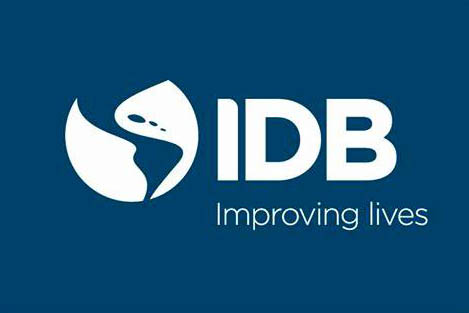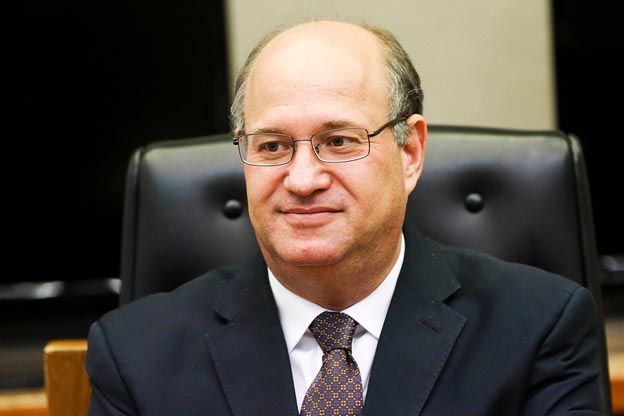 As the Caribbean continues to draw increasing attention to the positive transformations in its overall development profile, driven in large measure by Guyana’s exciting petro prospects and a wider unfolding regional effort to further burnish its image as one of the world’s most tourism-friendly places, the region continues to attract nods of approval from some of the world’s more high-profile development agencies. On Friday, President of the Inter-American Development Bank, Ilan Goldfajn used a Business Forum, part of the 2024 IDB and IDB Invest annual meetings of their respective Boards of Governors, to move to implement policies that will position them to maximize the opportunities with their current surge of economic growth.
As the Caribbean continues to draw increasing attention to the positive transformations in its overall development profile, driven in large measure by Guyana’s exciting petro prospects and a wider unfolding regional effort to further burnish its image as one of the world’s most tourism-friendly places, the region continues to attract nods of approval from some of the world’s more high-profile development agencies. On Friday, President of the Inter-American Development Bank, Ilan Goldfajn used a Business Forum, part of the 2024 IDB and IDB Invest annual meetings of their respective Boards of Governors, to move to implement policies that will position them to maximize the opportunities with their current surge of economic growth.
The Caribbean region, particularly, is currently bathed in a spotlight of international attention arising largely out of the ‘christening’ of Guyana as the world’s newest ‘petro power’ and the impetus that this development appears to have created for a surge by the wider region to present its developmental bona fides to the international community. In his address to the Business Forum, Goldfajn reportedly reeled off a succession of ‘good tidings’ insofar as the growth and development of the region is concerned. He ticked off what he said was the faster than anticipated growth of the region in recent years, as well as the decline in inflation, the result, he said, of responsible monetary and fiscal policies as two of the standout features of the forward movement of the region.
The IDB senior official also pointed to what he said was a 10% decline in the region in recent years according to the latest data and was also likely to have fallen further fallen in 2023. Goldfan’s ‘good tidings’ also included his disclosure that foreign direct investment in Latin America and the Caribbean experienced a record-setting surge in 2022 and that initial data appeared to suggest that the 2022 surge was likely matched last year. Goldfain reportedly told the high-profile meeting that apart from the fact that labour markets in the region had been remarkably strong, “unemployment rates have plummeted to some of the lowest levels in recent decades.”
Responding to his own rhetorical question as to whether or not what he termed a “better-than-expected performance” will last, Goldfain asserted that that depended on “Latin America and the Caribbean seizing the incredible opportunity that the global context provides the region” adding that, “If successful, Latin America and the Caribbean could be at a potential inflection point.” “For decades, Latin America and the Caribbean has been viewed through the lens of its needs; its need for financing and its need to reduce debt. But today, the world also needs Latin America and the Caribbean. That’s because of the region’s potential to be part of the solution to our shared challenges,” Goldfajn declared.
The changing perspective on the developmental prospects of the region have shifted considerably in the light of Guyana’s emergence into the spotlight as one of the world’s more recent ‘petro powers.’ Setting aside the investment ‘pull’ which the country’s enormous oil find has triggered, and which is reflected in the now global popularity of the country’s annual investment forum, Guyana’s petro pull has had a knock-on effect on global perceptions of the Caribbean’s overall potential as the next prospect for upping its credentials beyond the Third World confines within which it has been ‘imprisoned’ for decades.
Turning to the specific types of contributions which the region is now likely to be positioned to make, the IDB President asserted that given the right reforms and investment, the Caribbean and Latin America could find itself positioned at the centre of the effort to protect the world’s biodiversity, provide it with clean energy and alleviate global food insecurity. Contextually, Goldfajn asserted that if the region is to make its good fortune count it must make the right short-term reforms and investments while making the right long-term reforms and investments to increase productivity and economic growth over the longer term. “We must continue investing in our capacity to meet the world’s need to protect our greatest natural resources, like the Amazon… We must also keep investing in clean energy and food production,” he added.






